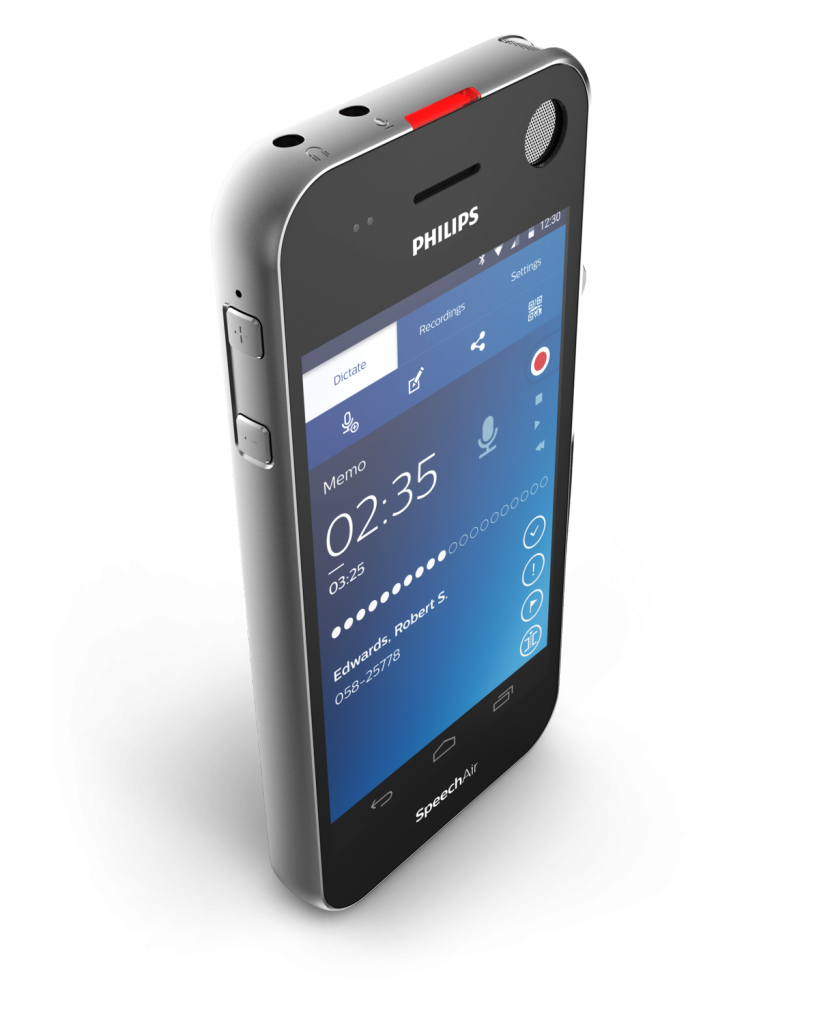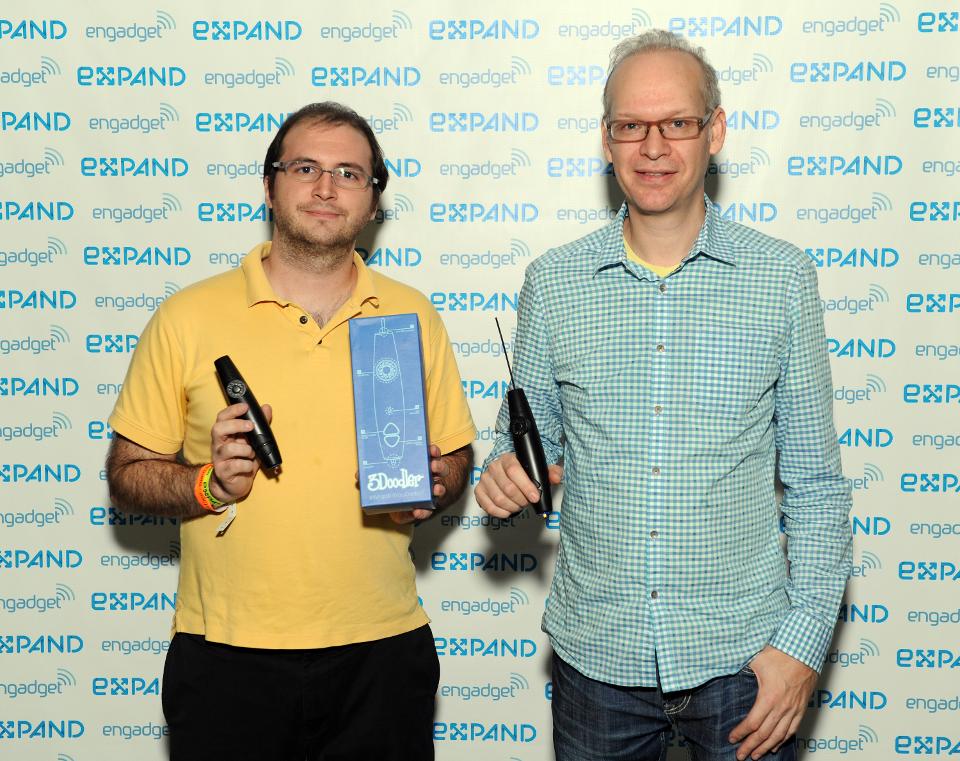Philips has announced a new dictation recorder: the Philips SpeechAir. Developed by Speech Processing Solutions, a subsidiary of Philips, it is powered by Android and focused on professional dictation solutions.
Targeted primarily at legal and medical professionals, this is designed to be integrated naturally into their workflows. Marketed as the product that links smartphones and dictation recorders, the SpeechAir does seem to do exactly that. You get three microphones but also get a touch screen, camera, Wi-Fi and Bluetooth, all of this powered by Android. The screen comes with a resolution of 480 x 800. Perfectly fine for a device whose primary function is not watching videos in full HD. Reinforcing with Gorilla Glass and an antimicrobial and shock proof housing ensures its durability. The 5 MP camera also lets you scan barcodes. Dedicated physical buttons and a slider ensure easy access and control over the primary functions.
Each of the three microphones is designed for a particular use-case scenario. The primary microphone is for recording meetings and dictations while a directional microphone will aid in noise cancellation in environments where ambient noise is a concern and the final microphone is for placing VoIP phone calls.

Interestingly, the device ships with Android 4.4.2. While this choice might not affect its functionality, I’m not sure why they would deliberately choose so old a version. Devices like this can benefit from the battery saving optimizations of later versions of Android. Did they start developing it in 2013? Do they want to provide a bevy of updates? There is also no information regarding whether the device comes with Play Store support. It is however highly unlikely for a device shipping with KitKat in 2016. The software also appears to be highly customized and more importantly, security focused. All recordings are automatically secured with 256-bit AES encryption, the camera can be locked and Wi-Fi access can be restricted.
The rest of the specs consist of a 1.6 GHz dual-core Cortex A9, 1 GB of RAM and 16 GB of internal storage. Good enough to handle what it is meant to do. Offering much more than any of its competitors do, it surely will have a price to match. Though we don’t have pricing details yet, Philips does let you know where you can get it from. It is always interesting and heartening to see Android powering new devices. What do you think this will do to the future of digital voice recorders?


